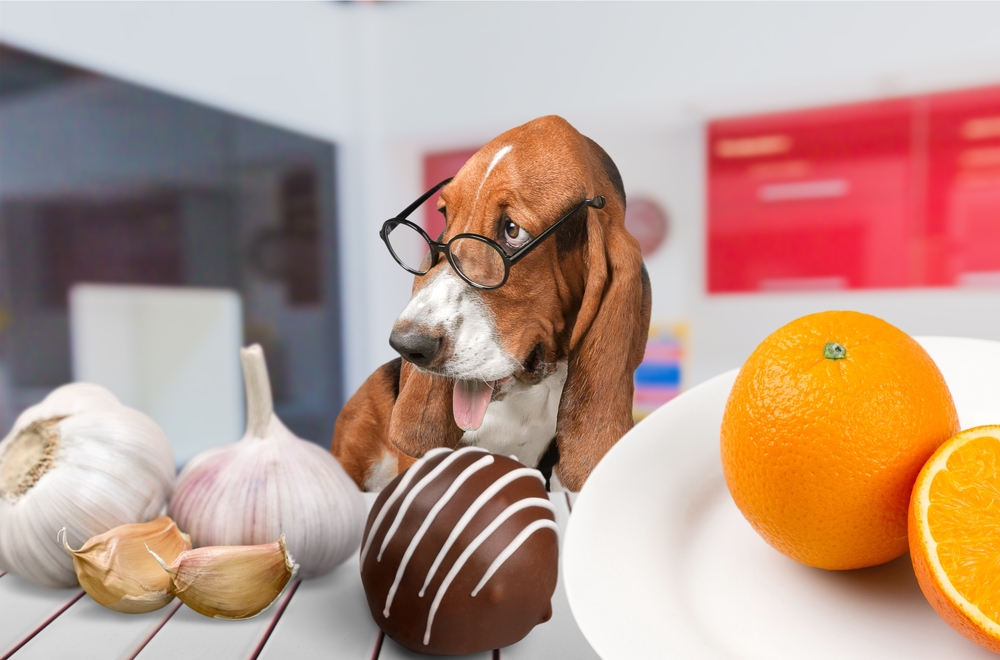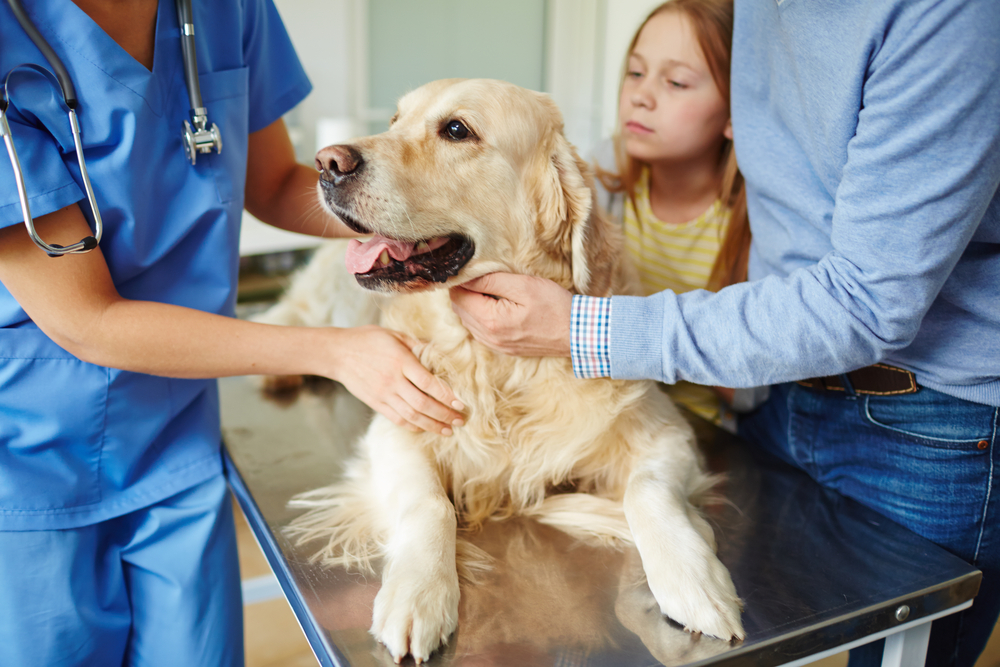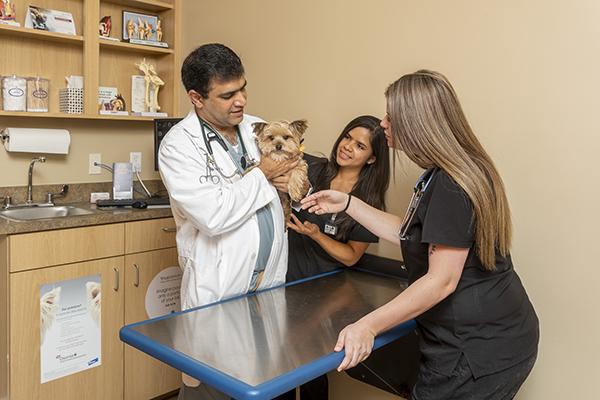Pets can sometimes eat foods or other things lying around that they shouldn’t. While in some cases the accidental ingestion of something other than their food isn’t cause for concern, there are some foods that are particularly toxic to animals like dogs and cats. These toxic foods or drinks can often lead to serious health implications for your companion if they’re not treated promptly.
What Foods Are Toxic for Common Household Pets to Consume?

Many of the foods that we enjoy on a regular basis are, unfortunately, unhealthy for pets to consume. While there are some foods that both humans and animals can enjoy, like chicken, but our differing digestive systems make it harder for pets to consume some of the same things humans enjoy. Here are some food items that are typically toxic for animals.
Chocolate
Due to the chemical theobromine that is present in chocolate, most pets like dogs cannot eat it. The darker the chocolate, or the higher the percentage of cacao present, the more dangerous it is for pets as the theobromine can affect the nervous system and the cardiovascular system, and, in some cases, even result in the death of your pet.
Grapes
Grapes contain tartaric acid, which many animals have trouble digesting. Any substance containing tartaric acid can lead to long-term kidney damage and indigestion. If your dog or other pet has consumed grapes, be sure to get immediate help for evaluation and treatment.
Onions & Garlic
Onions and garlic can be especially dangerous for dogs and cats. These foods can lead to anemia in animals because they affect the red blood cells. If left untreated, onion and garlic consumption in pets could lead to death. Onions and garlic belong to a plant group called alliums, which cats and dogs are particularly sensitive to. While onions and garlic can be a great way for humans to add flavor to food, it’s best kept away from our furry friends.
Citrus
For humans, citrus can serve as a boost to our immune systems because they typically contain vitamin C. But while foods like oranges and lemons can be beneficial for us, they contain essential oils like limonene and linalool, which are harmful to most small animals. The consumption of citrus can often lead to vomiting, diarrhea, or stomach poisoning in pets.
Nuts
Not all nuts are toxic to pets, but some, like macadamia nuts, can pose a risk. Due to the high-fat content present in nuts, their consumption can cause pancreatitis in some animals. The toxicity in nuts can lead to lethargy in pets, with accompanying symptoms such as tremors, vomiting, or even depression. In most cases, it’s best to keep your nuts stored away where your pet doesn’t have access to them.
Alcohol
Alcohol is toxic to both pets and people. While it may be okay for people to consume alcohol in moderation, if pets sip too much alcohol, they can experience a severe dip in body temperature and blood pressure or even experience respiratory failure. Even a small amount of alcohol, especially with a pet’s smaller body size, can be dangerous.
Follow These Steps if Your Pet Has Eaten Anything Toxic

If your pet has consumed anything toxic, be sure to follow these steps.
Call Animal Poison Control
If you notice your pet behaving differently or see that they got into some food that they shouldn’t have, the first thing you should do is call animal poison control. Animal poison control will help walk you through the emergency and find ways to help you navigate what immediate treatment your pet may need.
What Would a Poison Control Center Help You With?
Animal poison control centers are available 24 hours a day by phone. They can guide you by assessing the seriousness or severity of poison toxicity that occurred with your pet. Their hotline can help you determine what treatment, if any, may be required. Animal poison control may recommend immediate at-home treatment to help limit the level of toxicity in the body, or they may recommend you take your pet to the nearest vet clinic.
What Will the Poison Control Center Need to Know?
To help your pet, they will ask a series of questions, such as what kind of animal or breed you have, their size, what they consumed, roughly how much they consumed, and if they have any previous health conditions. It would be helpful to have as much information pertaining to your pet’s health ready when you call.
Schedule an Appointment With a Vet
After discussing your individual circumstances with animal poison control for immediate care, contact a vet to follow up with any more treatment protocols or health status evaluation. A vet can prescribe medication as necessary or offer other treatment services depending on what toxic substance your pet consumed and how much.
What Kind of Treatment Would a Vet Prescribe?
Depending on what your pet ate, a vet may use treatment methods such as:
- IV Fluid Administration
- Colonic Enemas
- Intestinal Surgery
- Induced Vomiting
What At-Home Treatments Would a Vet Recommend?
Before performing any at-home treatment methods, always consult with a vet to be sure it’s the right treatment for your animal. If what or how much your pet consumed was minor, a vet may recommend some simple at-home treatment methods such as:
- Giving Your Pet Activated Charcaol
- Help Them Drink More Water
- Supplements Such as Milk of Malaysia or Vitamin C
- Hydrogen Peroxide to Induce Vomiting
Store Away Toxic Food or Substances
As a preventative measure, it’s especially important to keep toxic food or other substances like alcohol away from your pets. Whether that means storing those food items high away ad out of reach, or staying especially attentive when you consume them, you could potentially save your pet from severe health distress.



